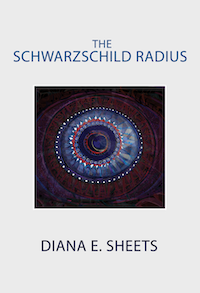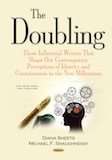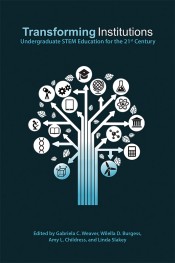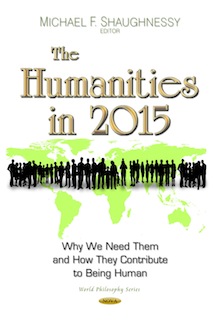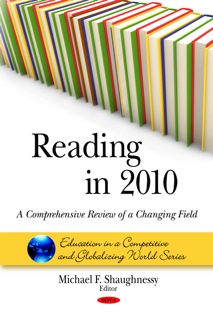Norman Mailer: "History as a Novel/The Novel as History," Part III, The Implications for Literature
Copyright © 2008 by Diana E. Sheets
What may we conclude about Mailer’s attempt to write the Great American Novel? His fiction never succeeded in presenting that sweeping panoramic story that encapsulated American Exceptionalism—the dynamic character, the frenzied pace, the explosive force that made our national story. Instead, it was Mailer’s “nonfictional novels”—The Armies of the Night: History as a Novel/The Novel as History, Of a Fire on the Moon, and The Executioner’s Song—that embedded the American psyche—our consciousness—into our contemporary tale. His inclination to create “nonfictional novels” as a means of conveying our national story was inspired. Literary fiction had become steeped in solipsism. It eschewed plot and dialogue, as well as political and social reality in favor of novels drenched in “interiority” and suffused with virtue. Men—those with aggression and intellect and drawn to the specter of violence—abandoned literary fiction, further accelerating its retreat from the world.
Alvin B. Kernan suggests in The Imaginary Library that the primary purpose of criticism is to assess literature’s place in the world (Princeton University Press, 1982, 6). Since the time of Samuel Johnson (1709-1784), fiction has been “other” directed, applying “metaphysics, the creative imagination, the primal unconscious, the deep self, the myth-making faculty, or, more recently, the abstract structure of language and mind” (6-7). This romantic predilection reinforced the poetic desire to remain “unchanged and untouched by the turmoil and disorder of human society . . . .” (7).
Despite Kernan’s assertions about the role of literary criticism, it, too, is subject to change. Fifty years ago scholars of his generation studied cultural history and analyzed fiction within a historical and social context derived from Enlightenment precepts extending back to the very foundations of Western Civilization. Thirty years ago, literary professionals heralded the triumph of Continental theory. Their Deconstructionist approach was saturated with the perspectives of Derrida, Lacan, and Foucault and overlain with Marxist and Feminist theories. Canonical studies of literature had been replaced with textual explications founded on “theoretical” constructs. Literature in this schema was objectified as “the text” and subjected to exhaustive analysis (
Today, pundits have replaced theorists. With only the most cursory training in literature, students begin addressing their subject matter through the politicized prism of race, class, and gender. Where once they studied “names, dates, events, periods, plots, characters, and poems, or practical skills of explication, editing, composition, and interpretation” now their subject is reduced to a political construct (144). Their scholarly endeavors are no longer an intellectual pursuit but rather a process of inculcation into political doctrine with the intention of creating “political speculators and cultural commentators” engaged in “a politics of humanist inquiry” (144). In other words, the educational purpose of literary criticism today is to develop the student’s prowess with power politics. This path to “political enlightenment” has as its foundation that Euro-American literature is derived from hegemonic cultures engaged in systematic repression. Thus, political assessments have replaced both the subject—literature—and the method of analysis—criticism (143-8).
Not that this devolution should come as a surprise. More than twenty-five years ago when Kernan published The Imaginary Library, he acknowledged the public’s declining interest in literature and interpretive analysis.
Literature is ceasing . . . to seem believable and useful to large and important groups in the society on whom it has depended for support, and its external problems are reflected within the institution where literary criticism is increasingly failing to carry out its traditional functions of interpreting the works and explaining their values in such a way as to justify them to new audiences . . . . (32)
In assessing this troubling trend, Kernan invokes the notion of the Imaginary Library. The concept is derived from the musing of the Romantic poet Shelley who envisioned consequential literature as inexorably linked through the ages, “that great poem which all poets, like the cooperating thoughts of one great mind, have built up since the beginning of the world” (8). The idea of the Imaginary Library rests on the very foundations of western enlightenment thought. It necessarily assumes that there is a body of path-breaking literature that collectively contributes to the social and intellectual consciousness of a civilization. However, without the criterion of excellence as a guide influencing the selections of the most worthy creations to be included over the course of human history, the future of the library is in peril. In the absence of a canon and literary critics adjudicating what constitutes great literature, there can be no “cooperating thoughts of one great mind . . . since the beginning of the world.” Rather, there is the prospect of cultural catastrophe that ensues with the loss of exceptional literature reminiscent of the destruction of the Alexandria Library in ancient
Kernan was acutely aware of the challenges of creating and sustaining the Imaginary Library given the ever changing judgments of literary taste that would drive the selection of authors and their representative works.
The Imaginary Library will be reorganized. The old works will remain on the shelves but will be rearranged as new revisionary histories of literature are written, the canon changed to give precedence to different works—say, Tristram Shandy over Tom Jones, Lewis Carroll over George Eliot . . . .
But this is all speculation, and the future of literature, if it survives, may well lie in some entirely different direction. (172-3)
What prognosis may be made about the future of the Great American Novel? These days, serious readers are few and far between. Literary writers and their critics have rejected fiction engaged with the world in favor of solipsism and claims of virtue. But what if our fiction were to become committed, once again, to presenting the American story? Might those novels partially revive the fortunes of great literature?
Certainly, Mailer understood what was at stake. His stories were based on actual events. He capitalized on his celebrity stature to attract readers hungering for autobiographical fictions. His “nonfictional novels” succeed because of his insistence on infusing personal narratives tied to propitious events. Mailer’s Great American Novel—The Executioner’s Song—was realized when he rejected narcissism in favor of a true life crime tale set in the American West that was saturated with the countercultural vacuity of the 1970’s. Only then does Mailer come tantalizingly close to realizing his dream of clarifying “a nation’s vision of itself” by means of “a revolution in the consciousness of our time.”


